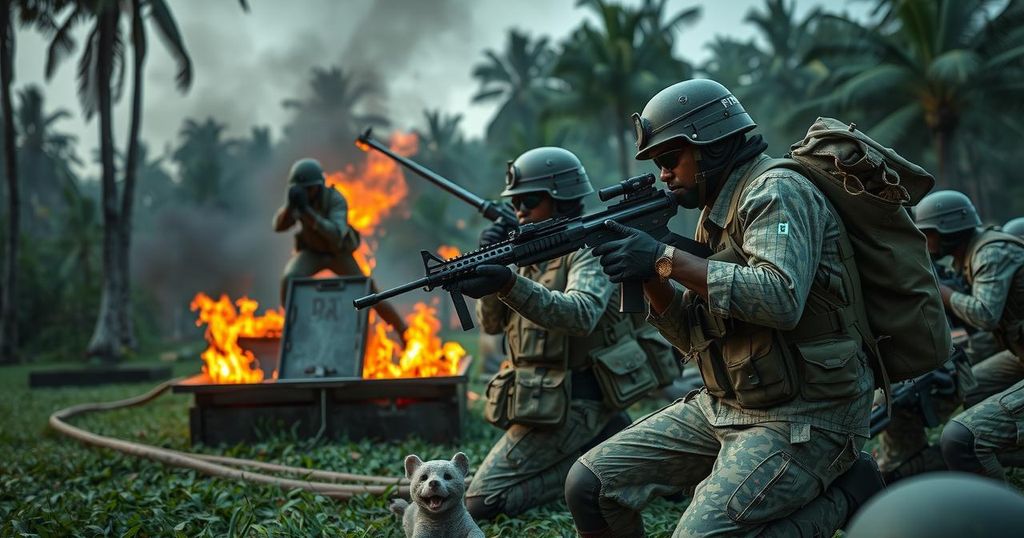The ongoing conflict in North Kivu, DR Congo, has resulted in severe humanitarian crises, displacing over 290,000 people in December 2024 alone. The fighting, primarily involving the M23 rebel group and the Congolese armed forces, has further complicated the situation, with the total number of displaced individuals in the region reaching 2.7 million. Continuous clashes have kept communities unstable and vulnerable to further violence.
The conflict in the Lubero region of North Kivu, Democratic Republic of Congo, has escalated significantly, resulting in the displacement of over 290,000 individuals in December alone. This alarming figure is part of a broader humanitarian crisis that has seen a total of approximately 2.7 million people uprooted from their homes due to continuous armed confrontations involving the M23 rebel group and the Congolese army (FARDC). The violence has been exacerbated by the actions of the Allied Democratic Forces (ADF), leading to a deteriorating humanitarian situation in the area.
Reports indicate that the M23, which has received military support from Rwanda, has been engaged in fierce battles with government forces and affiliated militias. This situation has not only created instability but has also heightened the vulnerability of the local populace, who have faced repeated displacements. Control over key territories, particularly Masisi, remains contested, with control of the city changing hands multiple times amid the fighting. The Congolese army is presently seeking to reclaim strategic positions to stabilize the situation in Masisi.
The Democratic Republic of Congo has experienced protracted conflict, particularly in the eastern provinces such as North Kivu. The Lubero region has faced intense violence from the M23, a rebel group alleged to be backed by Rwandan military support, and the ADF, a group that has aligned itself with the Islamic State. The humanitarian crisis resulting from this ongoing conflict has displaced millions, drawing international attention to the dire need for intervention and reconciliation. Efforts for peace, such as the recent talks in Luanda, have failed, leading to continued hostilities and civilian suffering.
In conclusion, the current humanitarian crisis in North Kivu, exacerbated by the ongoing clashes between the FARDC and the M23, has resulted in significant displacement and hardship for millions. As armed conflicts persist, the need for comprehensive peace negotiations and humanitarian assistance becomes increasingly urgent to alleviate the suffering of the Congolese people. The international community must remain vigilant and proactive in addressing this complex crisis to ensure stability and support for affected populations.
Original Source: www.fides.org






